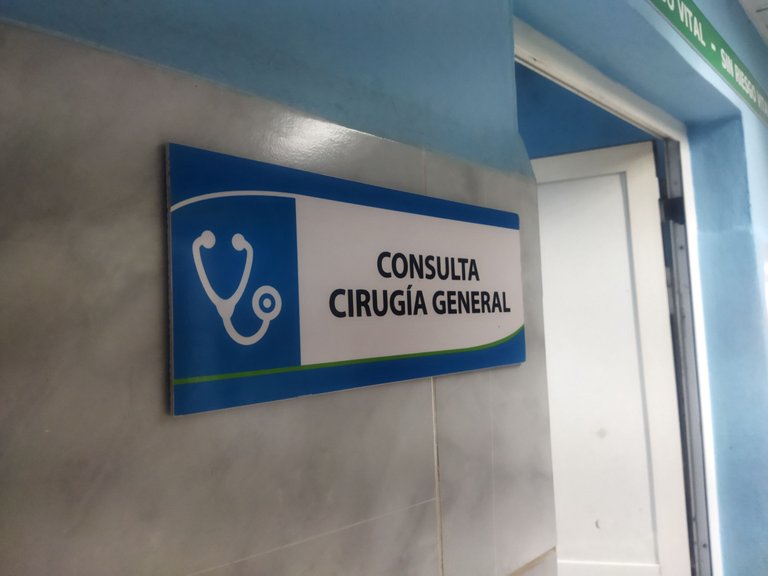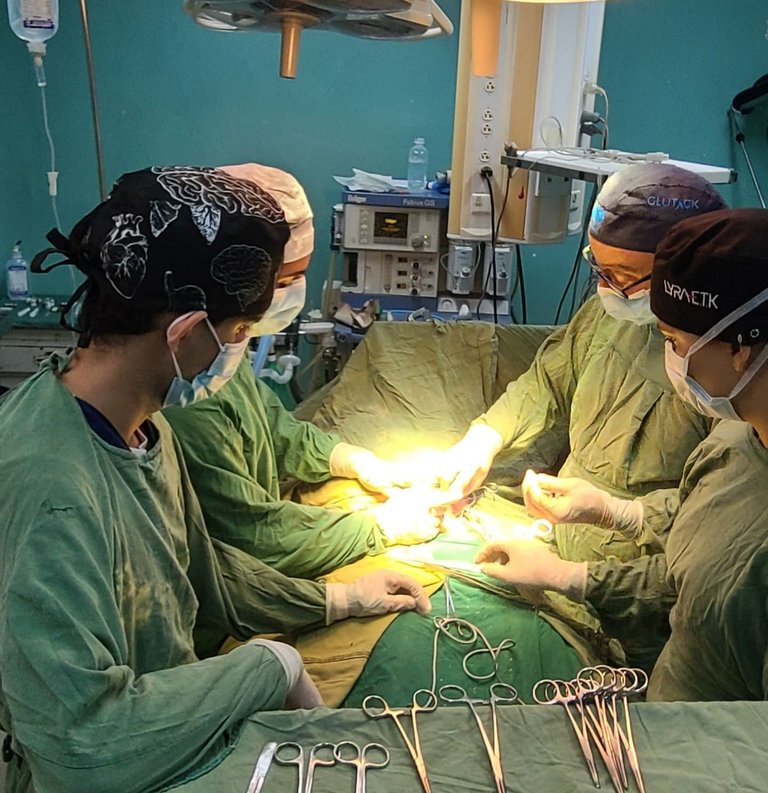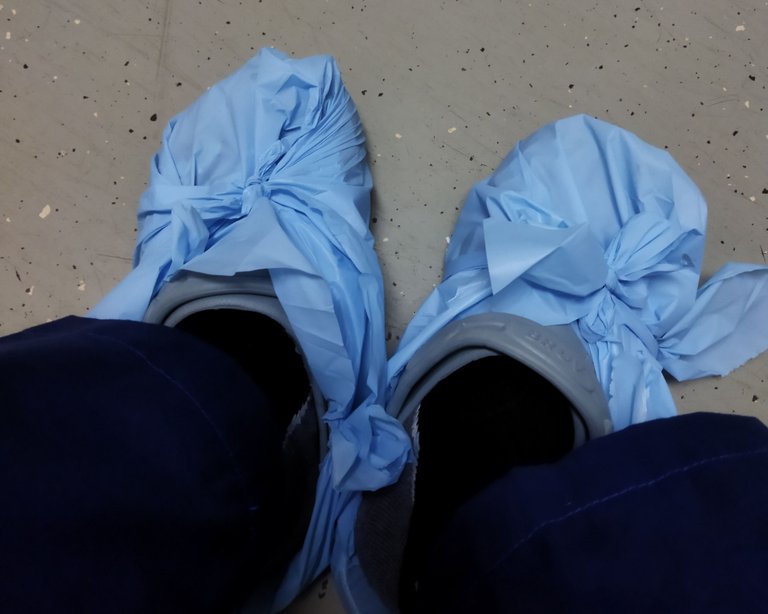During Cuba’s Special Period(1990s), the shortage of medical supplies led surgeons to develop creative techniques, such as reusable sutures and alternative anesthetics. Want to know how we do things today? Join me as I explain my 24 hours shift
It’s been a while since I shared a bit about what takes up a big part of my life: my med studies.
If you’re new here, I’m currently in my final year of medical school (the internship) in Cuba. If you’ve heard a bit about the current situation in my country, you can imagine it’s not easy. If not, stick around, and I’ll share more about the reality that doesn’t make it to social media.
Surgery
When I rotated in my fourth year, I wrote a post about it. The summary is that it’s one of the specialties I like the least, yet I’ve worked hard to maintain a good level.

So, I knew the internship would demand double from me. I wasn’t wrong; I barely have time to keep a steady pace of posts here.
With shifts every six days, consultation days, surgeries, and constant evaluations, I spend more time in the hospital than at home. I blink, and I’m back on shift.
Let's see a 24-hour shift.
The hospital was overwhelmed, supplies were insufficient, there were seminars, and a lot of work, along with countless lessons learned.
Morning
-Usually the most active part of the shift -
Following my dad's advice: ... it’s better to arrive an hour early than a minute late, so get in early. This allows me to check with the outgoing team if there’s anything pending.
If there’s nothing left, my colleagues and I prepare the duty sheet and gather supplies for the morning treatments.
Around 9 AM, the real work begins when the patients start arriving (it seems like they coordinate it).
These last shifts have been tough because the hospital has been constantly overwhelmed.
The beds fill up, and there are no discharges, which prevents us from admitting new patients. This causes two things: patients have to make do wherever they can or are referred to another center.
Deciding who gets admitted and who doesn’t is the hardest part of these days. Prioritizing supplies and patients is something no doctor can agree on.

Sometimes we get lucky, and in the morning, only treatments come in that don’t require admissions, helping us avoid the uncomfortable situation I mentioned earlier.
Personally, I enjoy busy mornings; time flies, and I hardly notice it.
Lunch marks the end of the morning and the beginning of the afternoon-evening.
The problem is that there’s no set time for it. Due to the workload, we rotate as we can to make lunch and recharge a bit because we’re not even halfway through.
Afternoon-Evening
-The least active but the most intense -
Once we’ve all had lunch, it’s time to check on the patients we admitted in the morning. We review drains, adjust them, take vital signs, update histories, and prepare them for surgery.
Many times, we even have to act as orderlies to move patients to the operating room.
Currently, the only plant in Cuba that supplies oxygen is experiencing issues. This has caused hospitals like ours to fall to minimal levels of gas availability. Again, we have to prioritize surgeries.
In the last few weeks, we’ve only operated on patients with cancer, digestive bleeding that can’t be resolved, and intestinal obstructions (three conditions that can be fatal).
The surgeries usually take up the entire afternoon, and for me, they are the worst part of the shift. It’s many hours on my feet, which is exhausting, but for those who love it (like my sister), it’s heavenly.
By the time we come down from the operating room, night has fallen, and we have to repeat what we did in the afternoon.

We check on the patients admitted while we were in surgery (if there were any) and get them ready for surgery in the early morning, when the other half of the on-call team comes in – more than once, I’ve had to wake up early for surgery.
At night, I usually have to be in consultations so my female colleagues can rest more comfortably, while also ensuring their safety. Nighttime brings very, very "peculiar" cases. So, I end up spending the night sleeping in a chair.
After six shifts, that chair has become my throne for sleeping. I’m going to miss it when I leave!
If we’re lucky, it’s rare for patients to arrive at night. If they do, it’s usually something serious, so we have to rush. Otherwise, it’s time to sleep, and we’ll be woken up later.
In the morning, all that’s left is to wake up the rest of the team and hand over the shift to those coming in.
Of course, these shifts have given rise to many curious and not-so-curious anecdotes. If you want to hear about the first ones, let me know in the comments, and we can create a post about it.
Maybe I’ll make a top list that, amid laughter and concern, will make you wonder if you would ever consider working in healthcare.
But anyway, tell me how healthcare is in your country?
Read you soon!
[dahpilot]
All images are mine.

Really hard work and done in very precarious conditions. I guess in the end, being able to help so many people is very satisfying. And of course it would be nice to have a post about curious anecdotes.
Best regards
Seeing a patient's smile or their endless gratitude is precisely why doctors work here today. Under the current conditions, it's impossible to provide the necessary help, but there's always something that can be done.
P.S:I'm already gathering some anecdotes, so I'll be around here soon.
How are you, my friend?
It's always a pleasure to read your messages, although I've been quite short on time these days
I'm also very busy, this month and next month in addition to my usual work I'm supervising trainees, and that's more work and less time for Hive. Sounds familiar, doesn't it?
A big hug.
I work in a child hospital (as IT chief) so I know how hard things can be. Keep doing a great Job and never lose the empathy.
!BBH
Thank you for your words. It's not easy, but we do what we can 😁
its a good and a great job that you can help many people
I wish we could help more people. I think it's never enough, but yes, thank you very much for your words
Congratulations @dahpilot! You have completed the following achievement on the Hive blockchain And have been rewarded with New badge(s)
Your next target is to reach 27000 upvotes.
You can view your badges on your board and compare yourself to others in the Ranking
If you no longer want to receive notifications, reply to this comment with the word
STOPCheck out our last posts:
hi...that was an incredibly amazing write up.
Congrats on your internship. it shows you are truly hardworking and dedicated. well done